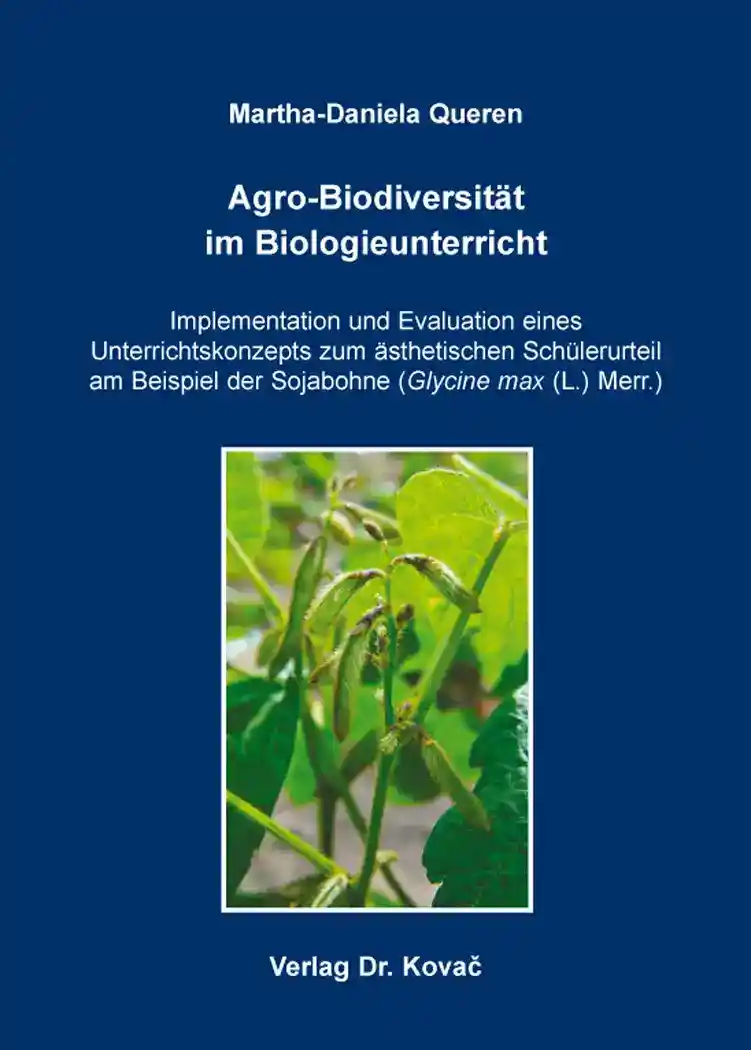Martha-Daniela QuerenAgro-Biodiversität im Biologieunterricht
Implementation und Evaluation eines Unterrichtskonzepts zum ästhetischen Schülerurteil am Beispiel der Sojabohne (Glycine max (L.) Merr.)
Didaktik in Forschung und Praxis, volume 72
Hamburg 2014, 224 pages
ISBN 978-3-8300-7707-7 (print) |ISBN 978-3-339-07707-3 (eBook)
About this book deutschenglish
Scientists have discussed the loss of biodiversity since the 1980s (Wilson, 1988). In Germany there is a public awareness for specific problems such as the forest dieback (“Waldsterben” phenomenon) or the loss of the tropical rainforests. The main reason is that media tend to focus on such environmental problems (BMLEV, 2007). The concept of “Agro-Biodiversity”, however, remains unknown to the public (Cox & Wood, 1999). This becomes obvious already at school. Students neither have sufficient knowledge about species nor are they informed about their meaning for humans (Wandersee & Schussler, 1999). Environmental education research has proven that students are willing to deal with this. Studies have also illustrated that students are more likely motivated about the topic if there is an emotional relationship with the organism (Retzlaff-Fürst, 2001). The beauty of an organism has turned out to be a factor for positive emotions. This quantitative analysis has shown the students’ judgement concerning the soybean as one of the human´s key agricultural crop. The technique used for this examination was designed as a pre-, post- and follow-up test. Furthermore, it was supported by the aesthetic education’s concept of form and content (ibid.). Based on this examination, the students’ expert knowledge about agro-biodiversity was examined. Moreover the examination recorded the development of the knowledge, the aesthetic judgement, sustainable thinking and acting over the teaching unit. The implementation and evaluation of the teaching unit to get knowledge about agro-biodiversity and sustainable thinking has shown that the learning motivation concerning crop plants can be awakened by the contact with living organims in out-of-school education. Getting into contact with living crop plants, students were able to improve their specialized agro-biodiversity knowledge, their science argumentation and their judgment competence.Keywords
Ästhetisches SchülerurteilAgro-BiodiversitätAußerschulischer LernortFachdidaktik BiologieModerat-konstruktivistisches LernenNutzpflanzenSchulgartenSojabohneIhr Werk im Verlag Dr. Kovač

Möchten Sie Ihre wissenschaftliche Arbeit publizieren? Erfahren Sie mehr über unsere günstigen Konditionen und unseren Service für Autorinnen und Autoren.
